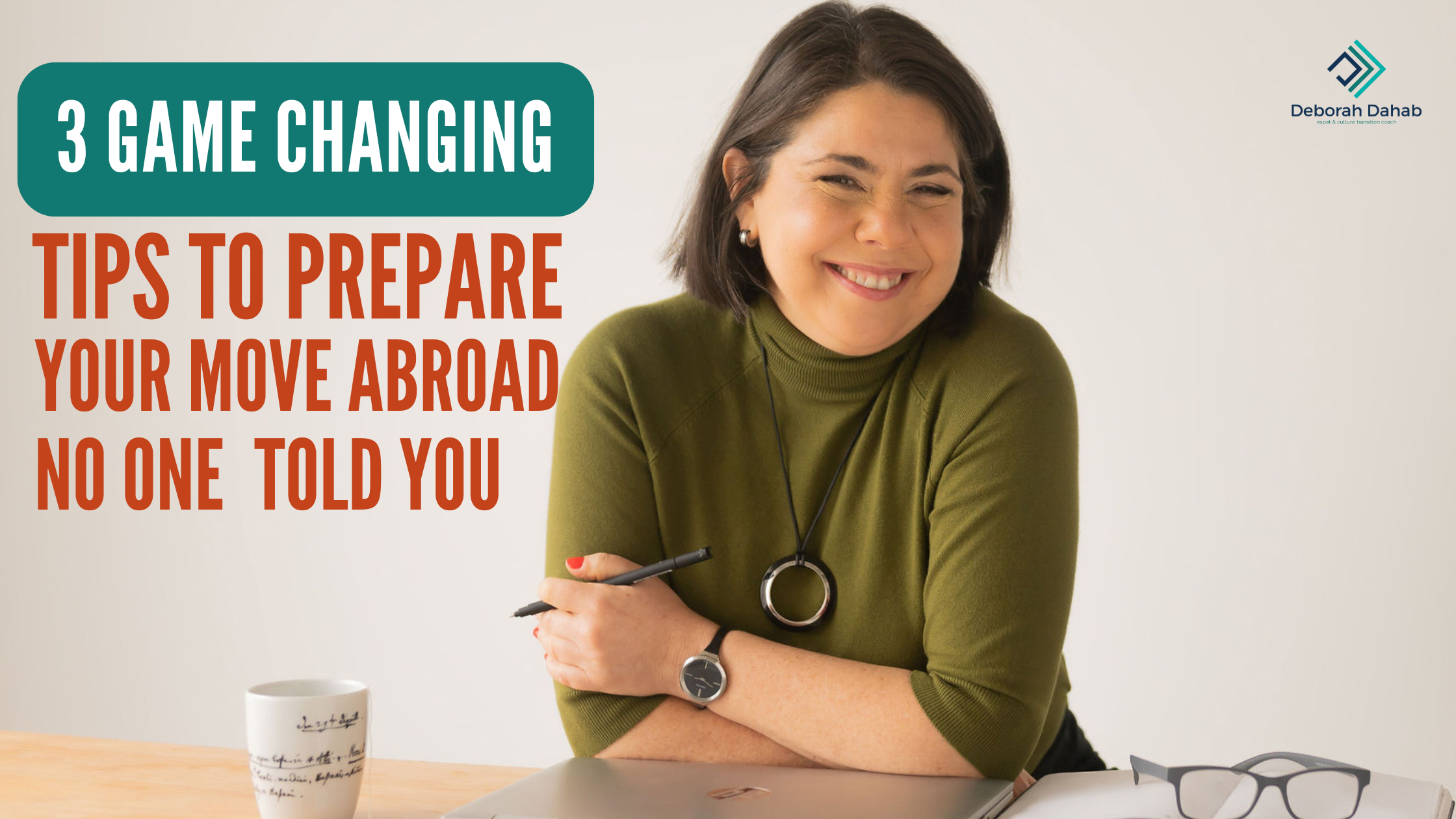Moving abroad is more than just packing boxes and managing logistics; it’s an emotional journey that requires careful planning and self-awareness. I’ve lived in six different countries over more than 40 years. I’ve also helped hundreds of people plan a move abroad in my courses, workshops, coaching programs and the Expat Journey Program.
I’ve collected the three most common tips that have helped countless people, just like you, planning a move abroad and doing their best to get everything right.
While you’re probably already thinking about the practical aspects like visas and housing, as these issues often take center stage, addressing the emotional and social challenges is equally crucial.
Here are three lesser-known tips to help you prepare for your international relocation and make the transition smoother.
1. Say Goodbye to More Than Just People
When preparing to leave, saying goodbye to family and friends is obvious, but have you thought about saying goodbye to places and objects as well?
Certain locations, such as your favorite coffee shop, a local park, or a cherished restaurant, likely hold special memories. Revisiting these places before you leave can create a sense of closure and allow you to savor those moments one last time.
Closure can be as simple as taking a photo, having a “final visit,” or quietly reflecting on the memories tied to the location. These rituals help you transition emotionally and prepare for the new phase of life ahead. This step isn’t just about nostalgia—it’s about acknowledging the significance of what you’re leaving behind so you can fully embrace what’s to come.
2. Build Connections Before You Go
Starting from scratch socially is one of the biggest challenges of moving abroad. Building a new social network takes time, effort, and patience. To ease this transition, start connecting with people in your destination before you even leave. Use social media groups, expat forums, or local community apps to find potential contacts.
Set a goal to arrange three to five meet-ups—such as coffee or lunch dates—for your first two weeks in your new home.
Having these initial connections will give you something to look forward to and provide opportunities to ask questions, get local advice, and feel less isolated during the early stages of settling in. This proactive approach helps turn an overwhelming adjustment period into a more positive and engaging experience.
If you are moving with kids, make connections on their behalf and help them make their own. Have playdates and activities set so you can start your journey abroad with the support of like-minded people.
3. Prepare for the Language Barrier
If you’re moving to a country where you don’t speak the language, this can quickly become a source of frustration. Initially, being unable to communicate might feel manageable, especially if you’re still in “tourist mode.”
Once the “honeymoon” is over and you establish routines and face practical challenges, the inability to understand or be understood can lead to cultural shock.
Start learning the language before you arrive, even if it’s just basic phrases like “please,” “thank you,” or “where is…?” Beyond memorizing vocabulary, focus on defining what you need the language for.
Are you aiming to handle daily tasks like grocery shopping or commuting, or do you need a higher level of proficiency for work or school? Tailor your learning approach to your specific needs.
By understanding your goals and how you learn best, you can make significant progress and feel more confident communicating in your new environment.
A Holistic Approach to Moving Abroad
These three tips—saying goodbye to places and objects, building connections early, and preparing for the language barrier—highlight the emotional and social dimensions of moving abroad. A successful relocation isn’t just about ticking off logistical checklists; it’s about ensuring your emotional well-being and fostering meaningful connections in your new home.
Looking for more support on your move and life abroad? Download my free ebook, Move Overseas with Ease, for real-life tips and advice to help you prepare for your transition and adjust to life abroad. Get it here: www.deborahdahab.com/freeresources


0 Comments